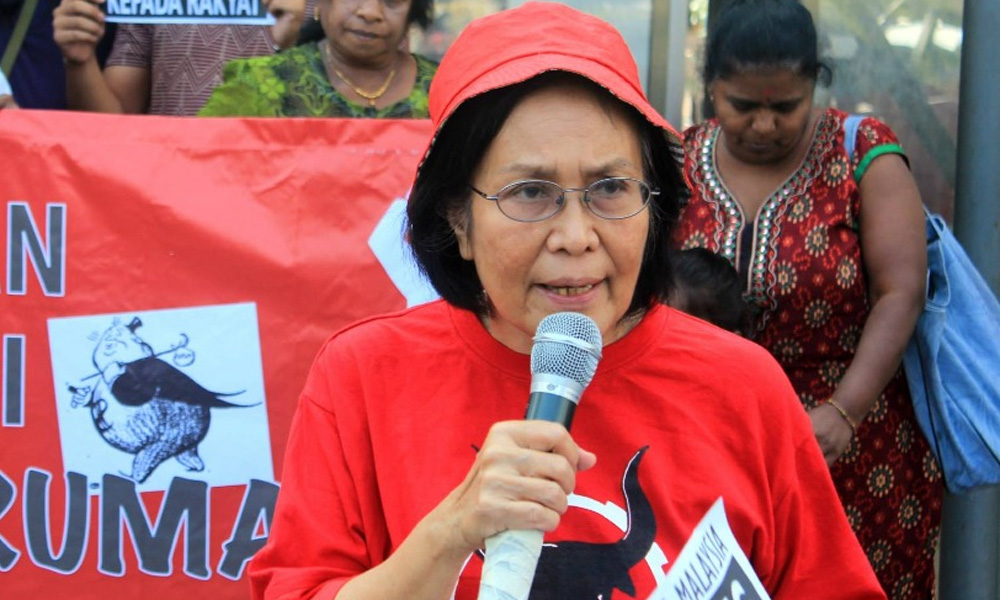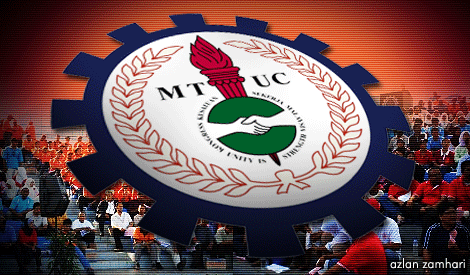LETTER | Where are the women leaders, MTUC?
LETTER | We are very concerned about the lack of representation of women in the recently elected leadership of the Malaysian Trades Union Congress (MTUC).
Since its inception in 1949 as a body that acted as an intermediary between the state and trade unions, the leadership of MTUC has been the exclusive domain of men. It is certainly not for the lack of women workers/unionists who would be able to fill in these leadership positions, as the numbers prove otherwise.
According to the Department of Trade Union Affairs of Malaysia, 441,106 women workers were registered as members of trade unions nationwide in 2018, compared with 489,628 men workers that same year.
The impact of women not being represented in decision-making positions in the MTUC is very serious for women’s equality in the country. A case in point is MTUC’s abysmal action of voting against the proposed International Labour Organization’s Convention on Violence and Harassment (C190) in 2019.
It smacks of a high level of apathy for the realities women workers face on a daily basis. In fact, the rights of women workers to a safe, secure and inclusive work environment is fundamental to their labour force participation. Hence, these rights should receive due recognition, making it the primary agenda of all trade unions and the MTUC in particular.
The failure to uphold women workers’ rights is a failure to uphold the labour rights of all workers.

Rohana Ariffin’s (above) seminal research on the participation of women in trade unions in Malaysia, which culminated in the publication of 'Women and Trade Unions in Peninsular Malaysia with Special Reference to MTUC and Congress of Union of Employees in the Public and Civil Services Malaysia' in 1997 revealed that patriarchal ideology had structured the perceptions and views unionists.
Stereotypes about male and female division labour meant women workers were primarily responsible for domestic work and this was widely accepted by trade unions and their leadership.
Unfortunately, this remains unchanged in the context of Malaysian women workers and their meaningful participation in labour unions to date. Again, this was reflected in the recently concluded 2020 MTUC leadership elections, with few women workers being nominated for decision-making positions, much less winning a seat at the decision-making table.
It is still exclusively a ‘big boys’ club’ as far as women are concerned. One of Rohana’s recommendations was that trade union education should be focused on the opening up of more opportunities for women in terms of training and responsible (decision-making) positions.
Alas, we have a long way to go in terms of increasing women’s meaningful participation in decision-making positions in trade unions in Malaysia. Despite being a signatory to Convention on the Elimination of All Forms of Discrimination Against Women (Cedaw), Malaysia has failed at providing adequate legal protection for women from harassment, violence and discrimination at the workplace.
In addition to this, Malaysia has done little to eliminate the severe barriers women face in achieving meaningful participation in trade unions.
This statement has been endorsed by six individuals: Lindu Livan; Janarthani Arumugam; four MAINS students from Sungkonghoe University, Seoul, South Korea - Dian Yanuardy, Eunsook Kang, Pan Hnin Aye & Indu Chaudhary; as well as by an NGO, Persatuan Sahabat Wanita Selangor.
The views expressed here are those of the author/contributor and do not necessarily represent the views of Malaysiakini.
RM12.50 / month
- Unlimited access to award-winning journalism
- Comment and share your opinions on all our articles
- Gift interesting stories to your friends
- Tax deductable
